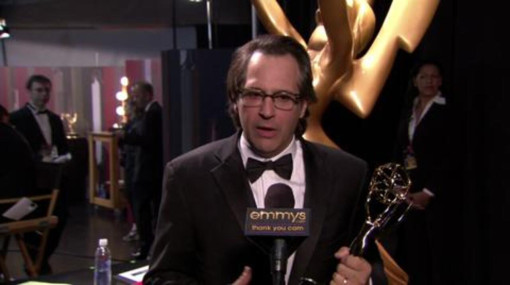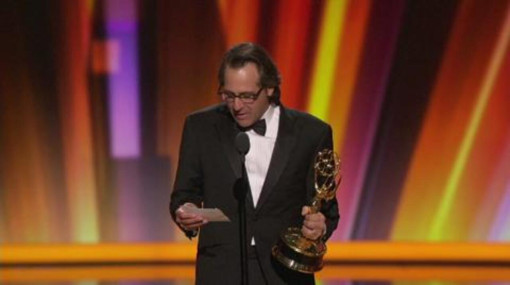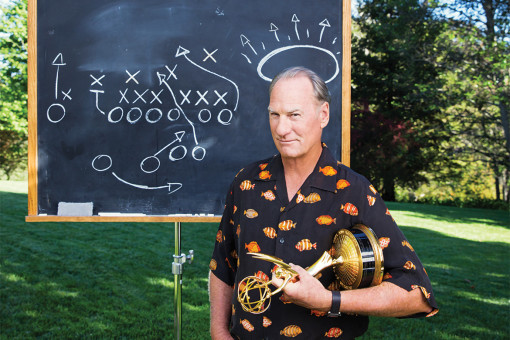When Parenthood premiered on NBC in March 2010, executive producer showrunner Jason Katims was coming off Friday Night Lights , the critically acclaimed drama set in a small, football-loving Texas town.
For his new family drama, Katims once again drew from a large ensemble cast — Craig T. Nelson, Peter Krause, Lauren Graham and more —and juggled multiple, wide-arcing yet nuanced storylines that revealed the intimate moments of daily life. Raw, real and relatable, the character-driven show connected with viewers even as it exposed the darker side of the ties that bind and often break hearts.
The scene in which Kristen (Monica Potter) and Adam Braverman (Peter Krause) tell their son, Max (Max Burkholder), he has Asperger syndrome was included in a TV Guide Top TV Moments of 2011. A year later The Daily Beast ranked the show as one of television's ten best.
Despite the positive reviews, awards, and an intense fan base, the series was always on the bubble for renewal. The fifth season ended with the Bravermans gathered around the dinner table, a familiar scene throughout the run of the show and a symbol of connectedness.
The not-quite-Norman Rockwell image worked as a series finale, but it still left viewers hopeful. NBC ultimately ordered a sixth season but announced it would be the show's last. That season is now drawing to a close; the final four episodes of Parenthood will air in January.
Katims has been overseeing the series' end while also serving as showrunner for the NBC comedy About a Boy.
Emmy contributor Shelley Gabert caught up with him as he was writing the final episode of Parenthood and preparing, like the rest of the show’s fans, to say goodbye to the Bravermans.
What has working on the series meant to you?
It has been an incredibly rich experience. The stories are very personal. It started in the pilot, in the storyline about Max having Asperger syndrome, which was inspired by my experience with my son. I kept going back and forth about whether to do it — it was a hard decision, but once I made it, that decision informed the entire show. I tried to make the show as intimate and personal as possible and to be emotionally true to the characters.
What has Parenthood brought to television that hadn’t been done before?
We’ve tried to give the stories their due. The As-perger storyline hasn’t gone away through the final episode. The breast-cancer story was a year of Kristina’s life, but it continues to inform her, just the way it does in real life. To be able to tell these stories is a combination of the writing, our directors and incredible actors as well as the style of shooting that was similar to what we used on Friday Night Lights .
The other thing that I think is unique is, it’s a very large cast and we have lots of storylines, lots of balls in the air. We touch on four, five or six stories an episode, and we’re telling them not from one mind, but from the perspective of a man in his seventies, a fifteen-year-old with Asperger’s, a single mom and a man in his mid-forties who has just lost his job. That’s the power of the show, to be able to touch on a lot of people’s lives.
How did Friday Night Lights influence Parenthood ?
There was much more hand-held camera work and a cinéma vérité feeling on Friday Night Lights, and we’ve done that on Parenthood, too. We had three cameras on both shows and we shot both sides of a scene at once, so you’re not getting only one character’s side and reactions while the other person is on camera. It allowed us to get a very naturalistic performance from the actors. Even though they look and feel very different, the shows also share a similar sensibility. We tried to tell intimate, character-driven stories, and we broke stories in the same way on both shows.
What’s it like in the writers’ room?
Every story that we’ve told stems from something that someone in our writers’ room has close experience with. One of our writers went through a separation and divorce like Julia [Erika Christensen] and Joel [Sam Jaeger]; another is part of a biracial family, similar to Crosby [Dax Shepard] and Jasmine [Joy Bryant]. My wife has gone through breast cancer. Doing a show like Parenthood is a double bonus because you get to tell great stories and also it’s free therapy when you’re in the writers’ room.
The show’s fan base is particularly enthusiastic. On Friday Night Lights we had very intense fans and the same is true here. We didn’t have the hugest audience by network standards, but our fans were very passionate about it — they’re so connected to the characters and feel like they’re part of their family.
One of the things I’m most grateful for is that we knew ahead of time that this was going to be the final season. Everyone on the show knew it was coming to an end, so creatively and personally we could put everything we had left into this final season. You feel such a responsibility to give the show an ending that everyone is happy with — the audience, the actors and the writers — and one that I’ll be satisfied with.
What are you consumed with now?
We’ve finished breaking all the stories, and during the last few episodes it was incredibly emotional. I had to leave the writers’ room while we were breaking the story for the final episode. I remember walking back into the room, and the writers had come up with a great title for the last episode. I started putting up the index card with the title and I started to cry. If an index card with a title can make you tear up, then you know you’re doing something really wrong or really right.
What is most important to you when a show comes to a close?
I always write the season finale. I have a strong road map, but I always try to give myself the liberty to improvise a little bit. I feel good about where the last episode is going, and hopefully I’ll still feel optimistic when I’m done. I think I will. We’ve spent the entire season in the writers’ room working up to it, and we want something that feels organic and natural and is an inevitable conclusion.
As somebody who has been part of the show all this time, it’s really a loss for me to not be able to write about these characters, to not have these characters in my life. It has been a privilege for all of us to tell their stories for the past six seasons.












